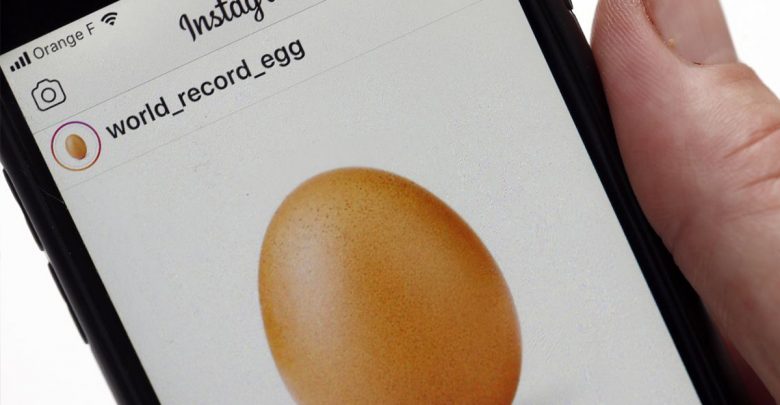Point/Counterpoint: Does the Instagram egg mean anything?
 Supplied
SuppliedPoint: It’s not that deep
Last weekend, as we all scrolled through Instagram, eyes glazed over, something amazing happened: a picture of a plain brown egg on a white background overtook Kylie Jenner’s baby reveal as the most liked picture on Instagram. At the time of writing, the egg has over 48 million likes, more than double the previous record of 18 million held by Jenner. Despite the egg being one of only two posts on the account, it has 7.7 million followers, and the owner of it has recently announced that they will be selling egg-related merchandise.
Now the egg could be interpreted a few ways, but honestly? It’s Not That Deep™. With the popularity of meme culture and its rapidfire jumps from joke to joke, it’s unfair to label any one viral trend as more important than the next. Today, the most liked post is an egg; tomorrow it could be a cheeseburger. Of course it isn’t easy to get 48 million likes on a picture, but for us to classify this as anything other than a standard viral post is assigning more value to it than it’s worth.
Why the Instagram egg went viral is hard to say, but the fact of the matter is that the record it replaced was only set in February of 2018 — less than a year ago. How long will it be until the next record is set? A year? Two?
All this is to say that the egg isn’t special. It’s part of a trend which has been growing since the early 2000’s: the skyrocketing popularity of internet memes. They seem to be rising to fame at an unprecedented rate, often with four or five truly viral memes coming to fruition each month. By the time this article is released, the egg may be old news, just as many of its meme ancestors are. Such is the circle of life, of which the egg is ironically a symbol.
On an unrelated note, follow @thegateway on Instagram to make it the most followed Instagram account ever. We only have 144 million to go before we beat Selena Gomez!
— Payton Ferguson
Counterpoint: There is hidden meaning to the internet’s most-liked post
It’s easy to look at the now famous Instagram egg and be entirely convinced that social media has devolved into a meaningless scramble for likes, dominated by meme culture and senseless mob rule. But to reduce this event to a simple internet trend is to miss the larger point. Beneath the surface of that beige oval is a hidden ethos that’s unconsciously changing the way we look at and approach social media.
A proper deconstruction of the egg requires special consideration of its purpose and deliberate timing. The caption of the post reads “let’s set a new world record together,” asking for 18 million likes. This is highly significant; the timing and content of the post suggests this isn’t just another pointless internet meme. Why break the world record now? And why with an egg of all things?
Precisely because of what was previously holding the record: a photo of Kylie Jenner holding her newborn daughter. Jenner, a symbol of pride and vanity, had used an unaware child as a mere vehicle for internet approval. That poor innocent child, less than a year old, was subjected to extreme social visibility for the pompous worship of her mother.
This is where the Instagram egg steps in. It’s symbolic of a rejection of narcissistic and exploitative practices in social media. It’s everything Jenner is not: simple, bland, and unimportant. The egg is a great existential “no” to self-glorification,
Furthermore, the egg isn’t a world record for the sake of publicity; the account is anonymous for a reason. The creator of @world_record_egg didn’t do it for fame; he did it for the sake of a better Instagram, for a better world. @world_record_egg is the hero we so desperately needed, even if he wasn’t the one we deserved.
— Dane Beliveau




